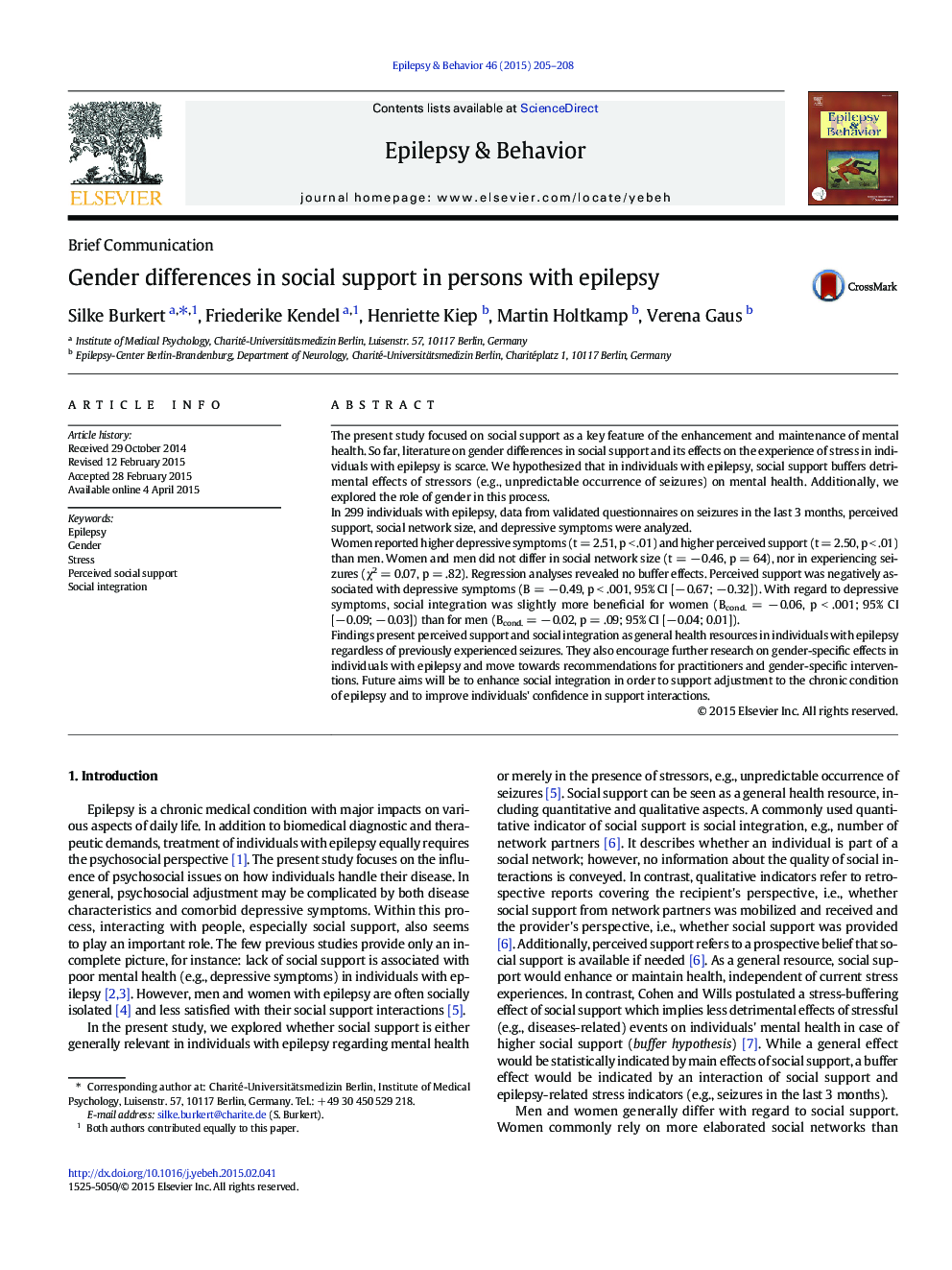| Article ID | Journal | Published Year | Pages | File Type |
|---|---|---|---|---|
| 6010985 | Epilepsy & Behavior | 2015 | 4 Pages |
â¢Stress buffer hypothesis describes social support to reduce detrimental effects of stress.â¢Main effects of social support rather than buffer effects were found in persons with epilepsy.â¢Women especially benefit from social integration.â¢Tailored interventions may improve confidence in social support in persons with epilepsy.
The present study focused on social support as a key feature of the enhancement and maintenance of mental health. So far, literature on gender differences in social support and its effects on the experience of stress in individuals with epilepsy is scarce. We hypothesized that in individuals with epilepsy, social support buffers detrimental effects of stressors (e.g., unpredictable occurrence of seizures) on mental health. Additionally, we explored the role of gender in this process.In 299 individuals with epilepsy, data from validated questionnaires on seizures in the last 3 months, perceived support, social network size, and depressive symptoms were analyzed.Women reported higher depressive symptoms (t = 2.51, p < .01) and higher perceived support (t = 2.50, p < .01) than men. Women and men did not differ in social network size (t = â 0.46, p = 64), nor in experiencing seizures (Ï2 = 0.07, p = .82). Regression analyses revealed no buffer effects. Perceived support was negatively associated with depressive symptoms (B = â 0.49, p < .001, 95% CI [â 0.67; â 0.32]). With regard to depressive symptoms, social integration was slightly more beneficial for women (Bcond. = â 0.06, p < .001; 95% CI [â 0.09; â 0.03]) than for men (Bcond. = â 0.02, p = .09; 95% CI [â 0.04; 0.01]).Findings present perceived support and social integration as general health resources in individuals with epilepsy regardless of previously experienced seizures. They also encourage further research on gender-specific effects in individuals with epilepsy and move towards recommendations for practitioners and gender-specific interventions. Future aims will be to enhance social integration in order to support adjustment to the chronic condition of epilepsy and to improve individuals' confidence in support interactions.
